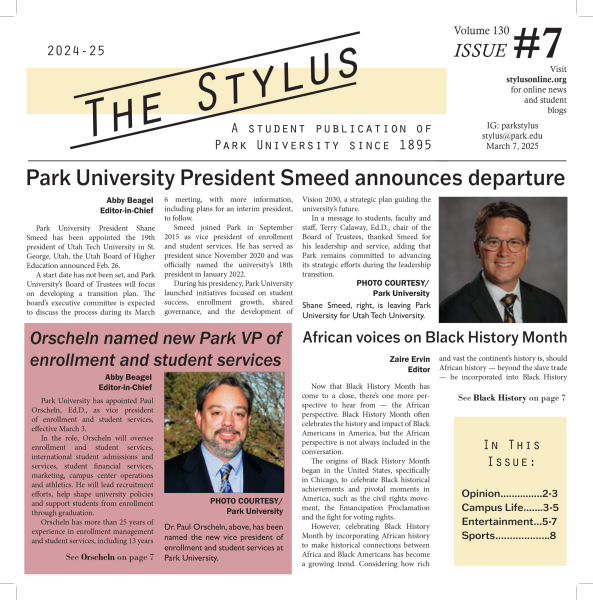Socialism’s PR problem is losing its half century stranglehold
The terms “socialism” and “social democracy” has had a PR problem since the days of the Red Scare during the Cold War. This problem means a lot of people don’t understand what socialism truly is.
Social democracy is a political philosophy that aims to create socialist ends through democratic means.
Starting with its roots in Marxism, socialism seeks to create a more systematic way to reach a less exploitative and more equal system through slow changes instead of through revolution.
Both Marxism and socialism focus on how lower classes are taken advantage of in a capitalist system. The key idea is that the wealthy, ruling and business-owning classes (the bourgeoisie) suppress wages and create unsafe working conditions to maximize their profits, regardless of the consequences to the poor and working classes (the proletariat).
Socialism, like Marxism, found its footing in mid to late 19th century Europe where industrialization was hitting its stride. Industrialization created brutal working conditions that were never going to improve unless the working class came together to force changes. From socialism, unions began in the 19th century.
Socialism is what gave us workers protections, the 40-hour work week and a minimum wage.
In my view, socialism is the belief that we ought to work toward always improving our society, that we ought to help our fellow human beings and that everyone in our society should have true equality of opportunity.
The lower-class exploitation of the 21st century in the United States is medical costs. People are riddled in debt for trying to stay alive. Wealthy medical companies are setting sky-high prices for essential medicine, such as insulin, knowing well that those who need it will die without it, so they’ll do anything and pay any price to get it.
Half a million people in the United States file for bankruptcy because of medical debt every year. According to CNBC, 66 percent of people filing for bankruptcies cite medical debt as a contributor.
Even those with health insurance are suffering under the heavy burden of this exploitation. My mother, who has a master’s degree in education, makes 3 cents a paycheck to ensure that my little sister and I have health insurance.
This isn’t the norm for Western nations. Almost every nation in the West has some sort of free or affordable universal healthcare. The United States has fallen behind, even though we have the resources and the ability to be a leader in healthcare.
Equality of health care isn’t the only issue facing Americans that socialism would work to solve. Every student in the United States has equal opportunity to public education, but that does not mean that every student gets an equal education.
I grew up in Ferguson, Missouri. Ferguson isn’t the most impoverished place in the greater St. Louis area, but it is struggling. My friends and I all knew we weren’t getting the same quality of education as the wealthier (and whiter) neighborhoods of the greater St. Louis area.
The public schools to the west of us all had fully funded extracurricular programs, newer textbooks and more opportunities for learning outside of the classrooms. Educators in the Ferguson-Florissant school district tried their best (and are still trying) to do what they can with what they have.
The reasons and causes for this inequality in the St. Louis area often come down to a long history of racism and discrimination: housing discrimination and “white flight” being key factors.
White homeowners with generational wealth in areas like Ferguson sold their homes and moved themselves, and their tax dollars, to areas west of St. Louis, leaving minorities – who have not been able to build up generational wealth thanks to Jim Crow-era policies – to try to fund their schools.
This isn’t only a St. Louis issue; this is a grander nationwide issue. A simple solution to this systemic problem would be to redistribute tax dollars to the entirety of states, or even across the entirety of the nation (including our American territories like America Samoa and Puerto Rico).
The common argument against socialism is examples of Nazi Germany, the Soviet Union or the current situation in Venezuela.
Despite the clever branding of “The National Socialist German Worker’s Party,” the Nazis did not believe in socialism. Socialism was highly popular with the working class of Germany prior to WWI.
The Nazis used this to create a familiar name with good connotations to pull working class Germans into their movement, and to start radicalizing them. The great depression was harder on the Germans than it was for the rest of the western world, and the Nazis used this to spur hatred and nationalism.
To further drive this point home, the Nazis sent socialists and communists to concentration camps as well.
The Soviet Union is a more complicated example. Socialism does not truly function under authoritarian dictatorships. Joseph Stalin didn’t care about the working class, he wanted to fulfil his needs and vision, and executed anyone who got in his way.
Venezuela is even more complicated than the prior examples. I propose a detour to Finland. Finland has a robust welfare system for all citizens, the state owns one-third of the nation’s wealth and it has many nationalized, state-owned enterprises.
What has caused Finland to succeed and Venezuela to not?
Like many countries in Latin American, Venezuela suffered during colonialism. Colonialism, even after its fall from prominence after WWII, left behind stratified class systems that left some people very wealthy and many people in poverty. This gave rise to socialist movements throughout Latin America.
During the cold war this caused anxiety in Washington, D.C. This American anxiety created several coup d’état attempts from the United States to try to implement right wing rulers. This was a common tactic for the United States during the Cold War (see Afghanistan, Argentina and Chile to name a few).
This began American intervention in Venezuela that has caused decades of instability.
Venezuela is also an oil rich country, while Finland is not. It is a lot cheaper to take oil from a country suffering than it is to trade for it.
The case of Finland and the case of Venezuela seem to be a case of a socialist country that the United States has not meddled with versus a socialist country that has dealt with constant meddling from the world’s most powerful nation.
Socialism is still suffering from the reputation it was given during the Red Scare, however, many of its core ideals are gaining popularity in the United States.
The belief that the voice of the large working class should outweigh the voice of the small wealthy elite, the belief that universal healthcare is a human right and that people working 40-hours a week should make a living wage are some of the key topics going into the 2020 election cycle. The fear of socialism is eroding and Americans are ready for change.
Your donation will support the student journalists of Park University. Your contribution will allow us to cover our annual website hosting costs, freeing up other funds for equipment, printing and training.







